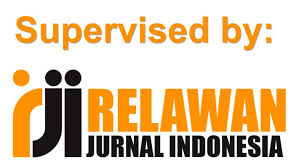Filsafat Sebagai Sarana Transformasi Pendidikan Islam: Perspektif Ayat-Ayat Kauniyah
DOI:
https://doi.org/10.37092/ej.v8i1.1247Keywords:
Philosophy, Islamic Education, Kauniyah Verses, Transformation, Qur'anAbstract
Islamic education in the modern era faces significant challenges in integrating scientific knowledge with spiritual values. The separation between religious and empirical sciences often leads to a dichotomy that hinders the holistic goals of Islamic education. In this context, kauniyah verses—signs of God's greatness manifested in the universe—hold great potential as a philosophical foundation for constructing an integrative and transformative educational system. This study aims to explore how philosophy can serve as a means of transforming Islamic education through the perspective of kauniyah verses. The research employs a qualitative approach using library research, analyzing primary sources such as the Qur’an and classical tafsir, along with secondary sources including books, journals, and literature on Islamic philosophy of education. The findings reveal that the integration of philosophy and kauniyah verses fosters an educational paradigm that is not only cognitive but also spiritual and reflective. Philosophy acts as an interpretive framework that enables learners to understand natural phenomena not merely from a scientific lens, but also as divine signs pointing toward the strengthening of tauhid values. Consequently, Islamic education grounded in philosophical and kauniyah approaches can produce individuals who are intellectually capable and spiritually and ethically responsible. These findings affirm the urgency of transforming Islamic curricula to harmonize revelation and reason within a unified educational paradigm.
Downloads
Downloads
Published
How to Cite
Issue
Section
License
Copyright (c) 2025 Taufik Mukmin

This work is licensed under a Creative Commons Attribution-NonCommercial-NoDerivatives 4.0 International License.











